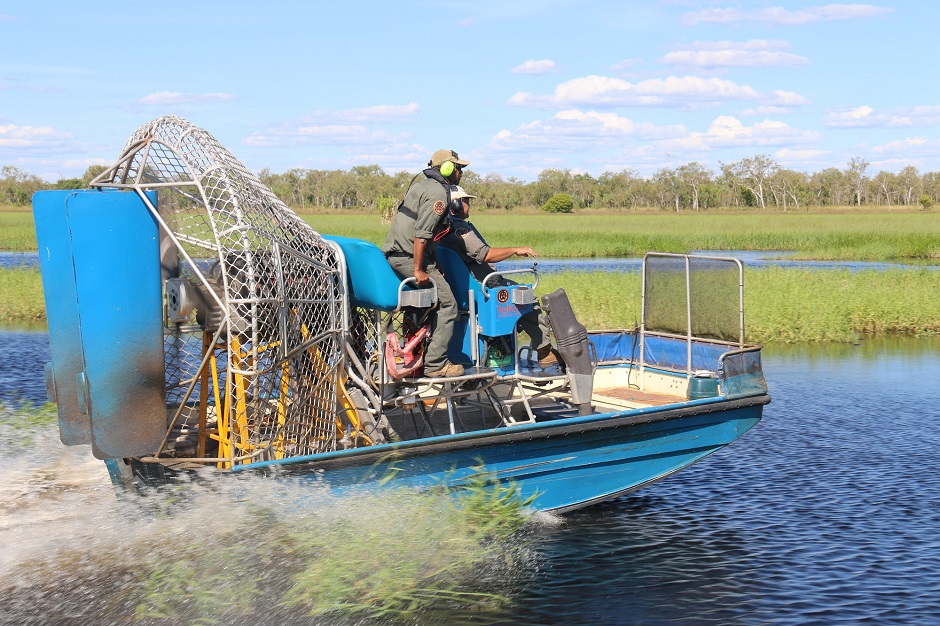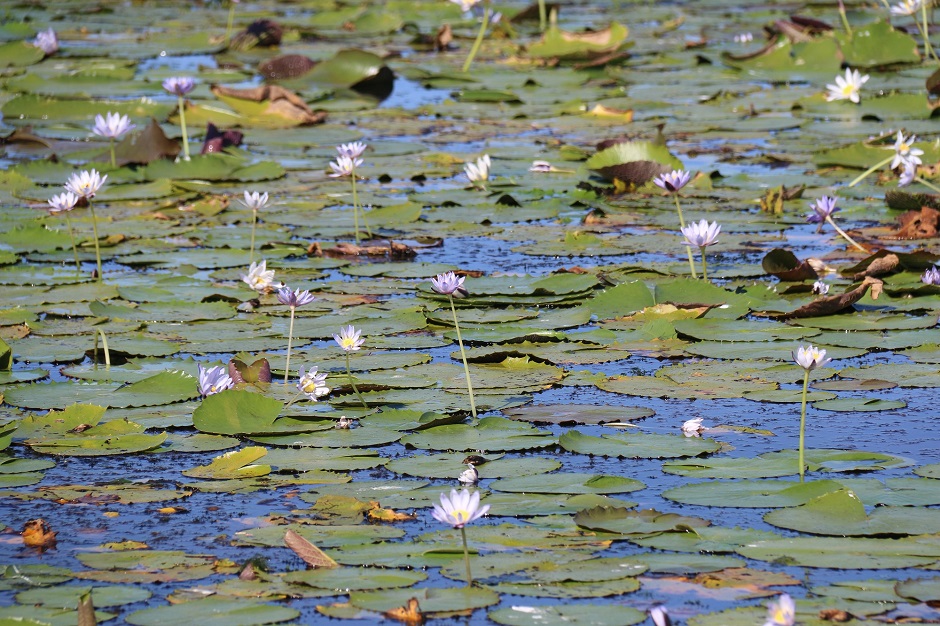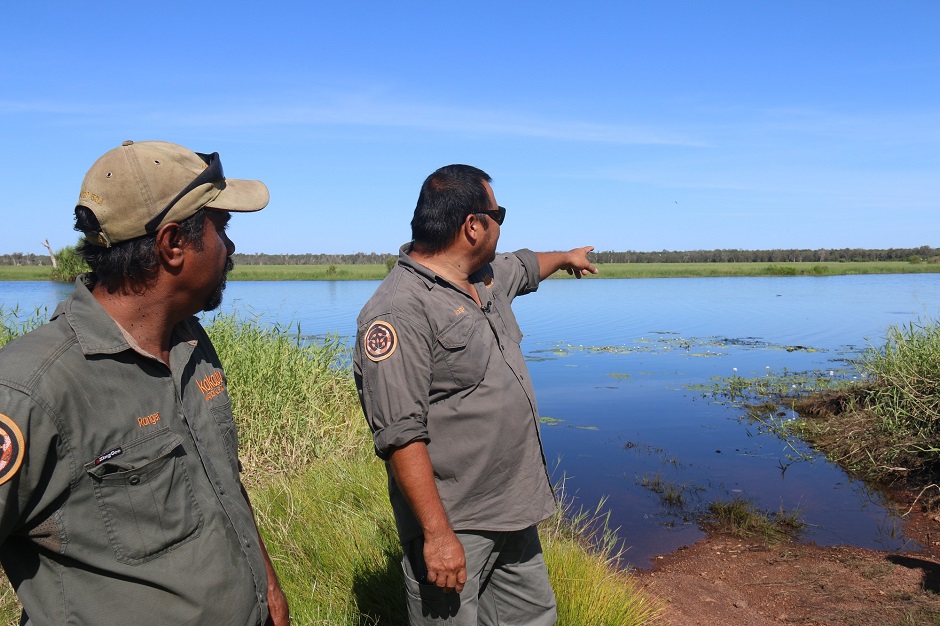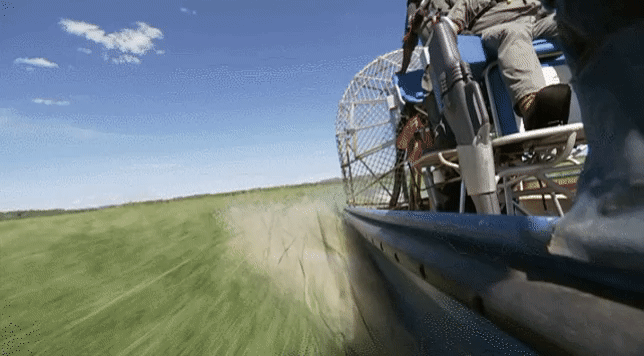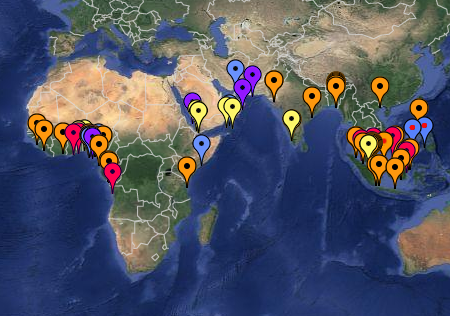A dry wet season for Kakadu National Park
updated: 27 April 2016
by: Sally Brooks
Kakadu National Park in Australia’s Northern Territory has suffered its driest wet season in more than two decades, according to a ranger. The arid conditions are affecting plants and animals, while climate experts predict some areas are set to break low rainfall records.
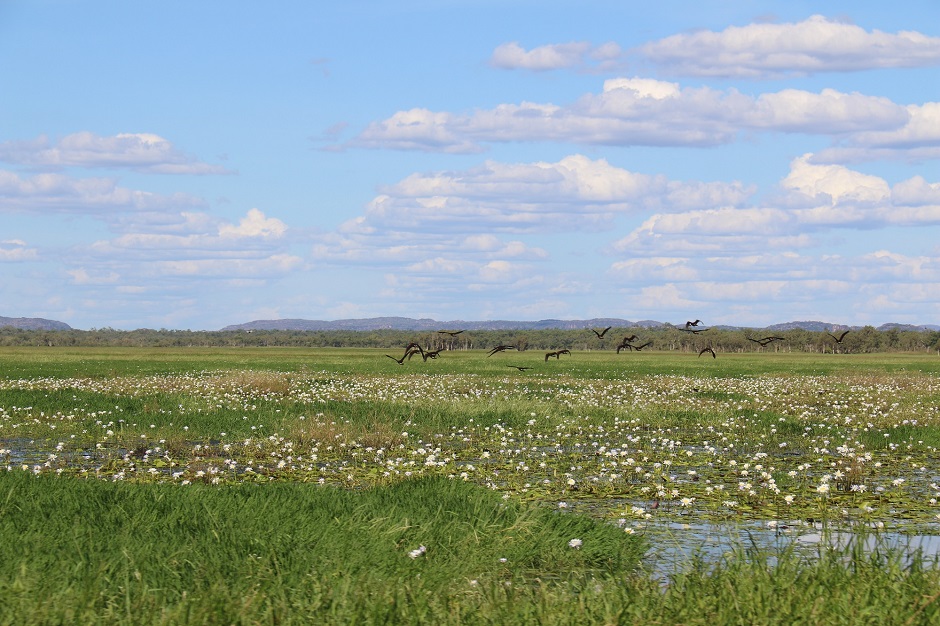
Water levels on the Magela floodplain and connected billabongs, near the East Alligator River, are extremely low
Water levels in the World Heritage-listed Kakadu National Park are, for this time of year, extremely low.
From October until the end of April, Kakadu is supposed to be inundated with water, breathing life into the spectacular country and diverse animal life.
“I’ve been here for 22 years and this is definitely the driest season we’ve had,” Calvin Murakami said.
Mr Murakami and his colleague Fred Hunter work as rangers in the park, managing plants and animals.
“The weeds have had a really good year because it hasn’t flooded,” Mr Murakami said.
“They’re really booming.”
The rangers use airboats in the wet season to get to areas which can be hard to access on the Magela floodplain.
The floodplain and connected billabongs are located near the East Alligator River, in the north-east section of the national park.
Aside from thriving weeds, Mr Murakami said the lack of rain would also affect animals, including magpie geese.
“It could mean a lot less geese,” he said.
“The nesting hasn’t been as good and they can’t supply enough food to their young and for themselves, to carry themselves through to the next seasons.”
Water lilies are just one of around 2,000 plant species found on wetlands in Kakadu National Park.
Mr Murakami said tourists would also see a different side to Kakadu than would normally be experienced at this time of year.
“I can’t see it completely drying out but what will happen [is] you’ll see levels a lot lower,” he said.
El Nino is causing the dry conditions in Kakadu and surrounding areas, according to Bureau of Meteorology climate services manager Greg Browning.
“We’re still in El Nino, it’s declining at moment,” he said.
“The impact it has on Australia is reduced rainfall and Northern Australia has really seen those impacts quite sharply.
“Top End rainfall in particular has really suffered, and many places are only tracking on about 50 per cent of their average wet season rainfall to date.
“Some of those places are probably going to be in the handful of lowest rainfall on record when the end of the wet season finally happens.”
The wet season officially finishes at the end of this month and rangers say water on the Magela floodplain will be dry soon after.

